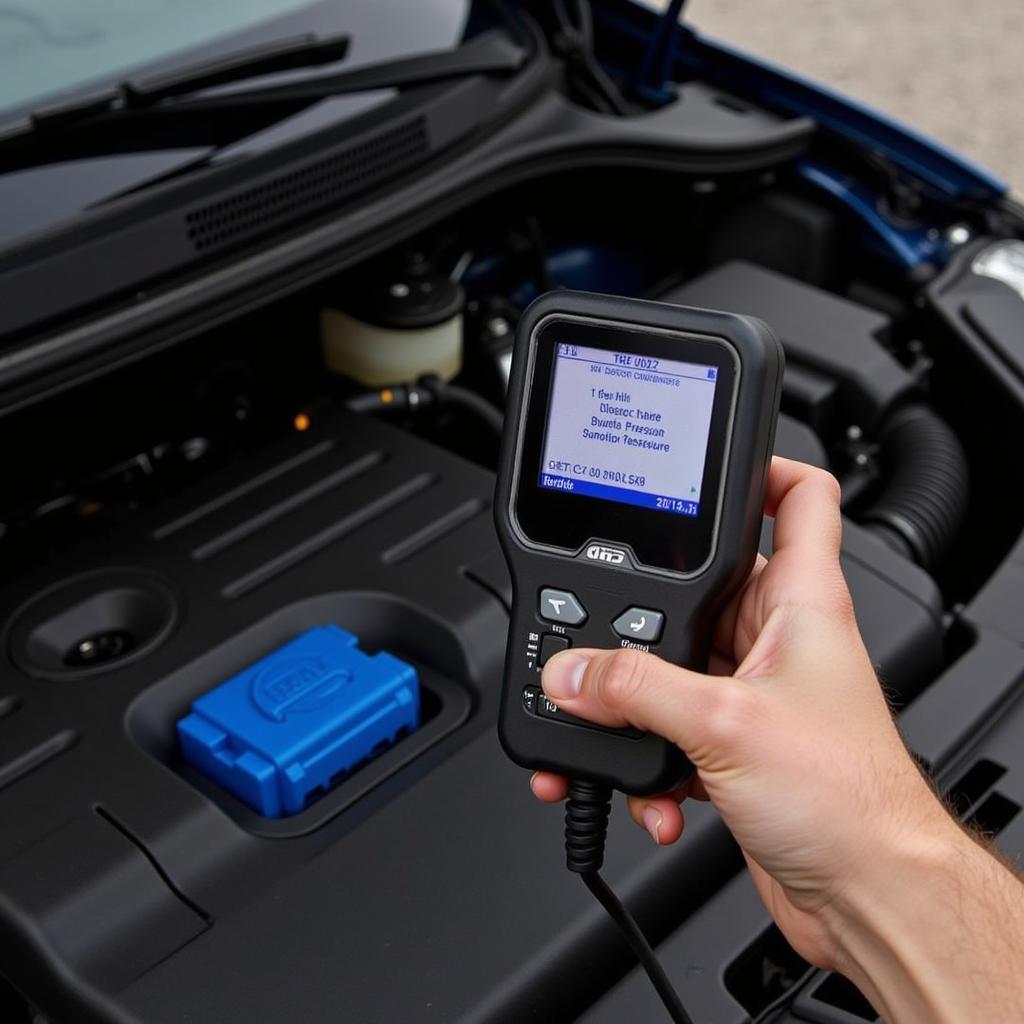Your cart is currently empty!

VW Beetle TDI Engine Codes: A Comprehensive Guide
Understanding and addressing VW Beetle TDI engine codes is crucial for maintaining optimal performance and longevity. This guide provides comprehensive information about these codes, their meaning, common causes, and troubleshooting steps.
The Volkswagen Beetle TDI, known for its fuel efficiency and peppy performance, can sometimes present challenges with its complex engine management system. A flashing check engine light or a noticeable drop in performance often indicates a problem, and understanding the associated engine codes is the first step to resolving the issue.
Decoding the VW Beetle TDI Engine Codes
VW Beetle TDI engine codes are standardized diagnostic trouble codes (DTCs) that pinpoint specific areas within the engine system where malfunctions have been detected. These codes follow the OBD-II (On-Board Diagnostics II) standard, a universal system used in most modern vehicles. Each code consists of a combination of letters and numbers, providing valuable clues to the underlying issue. For example, the P0299 code indicates low boost pressure, a common issue in turbocharged engines like the TDI.
 VW Beetle TDI OBD-II Scanner in Use
VW Beetle TDI OBD-II Scanner in Use
Common VW Beetle TDI Engine Codes and Their Causes
Several engine codes frequently appear in VW Beetle TDIs. Understanding their typical causes can help narrow down the diagnostic process.
-
P0299 (Turbo Underboost): This code often points to issues with the turbocharger itself, such as a faulty wastegate or a failing turbo actuator. Other potential causes include leaks in the intake system, a clogged air filter, or problems with the boost pressure sensor. Proper diagnosis is crucial to avoid unnecessary component replacements.
-
P0401 (Exhaust Gas Recirculation Flow Insufficient Detected): This code indicates a problem with the EGR system, designed to reduce emissions. Common culprits include a clogged EGR valve, a faulty EGR cooler, or issues with the EGR control solenoid.
-
P2015 (Intake Manifold Runner Position Sensor/Switch Circuit Range/Performance Bank 1): This code often signals a problem with the intake manifold runner control, which regulates air flow into the engine. A malfunctioning sensor, damaged wiring, or a stuck intake manifold runner can trigger this code.
Diagnosing and Troubleshooting VW Beetle TDI Engine Codes
Once you’ve retrieved the engine code using an OBD-II scanner, the next step involves systematic diagnosis. Simply reading the code doesn’t always pinpoint the exact problem; further investigation is often required.
- Verify the Code: Clear the code and see if it returns. Sometimes, a code can be a temporary glitch. If it reappears, further investigation is warranted.
- Visual Inspection: Check for obvious signs of damage or leaks in the relevant systems. For a P0299 code, inspect the intake hoses for cracks or loose connections.
- Component Testing: Use a multimeter or other diagnostic tools to test the functionality of suspected components. For a P0401 code, testing the EGR valve’s operation is a crucial step.
What if the Check Engine Light Keeps Coming Back?
If you’ve attempted basic troubleshooting and the check engine light persists, it’s often advisable to seek professional help. A qualified VW technician will have the expertise and tools to perform a more in-depth diagnosis and recommend the necessary repairs.
Similar to the vw p0172 code, accurately diagnosing and resolving TDI engine codes often requires a combination of knowledge, experience, and specialized tools.
Maintaining Your VW Beetle TDI to Prevent Engine Codes
Preventing engine codes in the first place is the best approach. Regular maintenance, including timely oil changes, air filter replacements, and fuel system cleaning, can significantly reduce the risk of issues.
This also applies to understanding vw p0420 code which pertains to catalytic converter efficiency. Regular maintenance contributes significantly to the overall health and performance of your vehicle’s emission system.
Conclusion
VW Beetle TDI engine codes offer valuable insights into the health of your vehicle’s engine. Understanding these codes and their potential causes empowers you to address issues promptly and effectively. While some troubleshooting can be done by the owner, more complex problems often require professional assistance. Regular maintenance and proactive care are essential for preventing engine codes and ensuring your VW Beetle TDI runs smoothly for years to come. Contact us at VCDStool at +1 (641) 206-8880 and our email address: vcdstool@gmail.com or visit our office at 6719 W 70th Ave, Arvada, CO 80003, USA, for any assistance or questions regarding your VW Beetle TDI.
FAQ
-
What does a flashing check engine light mean? A flashing check engine light usually indicates a serious problem requiring immediate attention.
-
Can I drive my VW Beetle TDI with a check engine light on? While you might be able to drive short distances, it’s best to get the issue diagnosed and resolved as soon as possible.
-
Where can I find a reliable VW mechanic? Check online reviews and ask for recommendations from fellow VW owners.
-
How much does it typically cost to diagnose and repair a VW Beetle TDI engine code? The cost varies depending on the specific code and the necessary repairs.
-
What is an OBD-II scanner, and where can I buy one? An OBD-II scanner is a diagnostic tool used to retrieve engine codes. They’re available at most auto parts stores and online retailers.
-
Are there any preventative maintenance tips specific to VW Beetle TDIs? Using high-quality diesel fuel and following the manufacturer’s recommended service intervals are crucial for VW TDI engines.
-
How can I find more information about a specific VW Beetle TDI engine code? Online forums and resources dedicated to VW vehicles can provide valuable information and support.
by
Tags:
Leave a Reply